Where does one start with China? It seems too vast, too alien, too ancient to get a handle on. With over 1.4 billion people (more than Europe and the Americas combined) and five thousand years of civilization, it might even be too much for the Chinese themselves to comprehend.
Yet, it is also strangely homogeneous, with over 90% of the population considering themselves members of the Han ethnicity. There is uniformity amid the vastness … at least, I think there is … I don’t really know.
Most Westerners, including me, pretty much ignore China. The nightly news may carry vague threats of a war over Taiwan, but we don't concern ourselves with their daily lives. Chinese cinema doesn't get shown here. Chinese books rarely make it into bookshops. Thousands of Chinese students attend university in Glasgow and are always pleasant to talk to, but there is a sense that they have a separate Chinese scene that they interact with, from apps to police.
Photography is my route to the universal. It is the place where I hope to find a common humanity despite cultural differences. For instance, in 1955, Edward Steichen curated an exhibition called The Family of Man. It was part of a wave of humanist ideas that emerged at the end of the Second World War, such as the Universal Declaration of Human Rights. Nowadays, with rising nationalism across the world, it seems as if the dream of a universal humanity is fading into memory. How about photography? Can it still help us connect with our fellow man?
Zhang Xiao (born 1981) is my introduction to Chinese photography. His book, Coastline (2011) shows China adapting to decades of inordinate growth during which they built 500 new cities. Many of those cities were on the coast, reflecting the country’s export-driven economy. Xiao himself grew up in the coastal city of Yantai, so he could recognise how haphazardly things were changing.
Martin Parr has said, “A day at the beach is the same the world over,” but that people from each country are “idiosyncratic” when they get there. In his photographs of cities along China’s 18,000-kilometre coastline, Xiao shows these idiosyncrasies in a soft, dreamy palette.
Unlike Parr, Xiao doesn't get too close to his subjects. He rarely focuses on the individual, preferring to show large groups of bathers. There is absurdity at times, but it is never mocking or cruel. It’s more like gentle surrealism, as in this photograph of dogs waiting at each end of a bicycle.
Xiao consistently manages to find dissonance in each scene. Take this photograph of a White House-style building as a man with a bike pushes an ox, which captures both globalised modernity and ancient practices.
It really is, as the cliché goes, a land of contrasts. With some scrabbling in bins …
… while others dress identically as they walk to work.
The only time Coastline feels truly foreign is in the accompanying texts. There is no mention of a translator, so I assume they wrote in English or used a 2010-era Google Translate. For instance, the introduction by Yan Changjiang contains this description of the sea and sky:
Like the eternal code, it surveys this human world, hanging with its sword, highlighting the secular ugliness.
There is poetry here, along with a critique of modernity that feels alien. Tradition still seems to matter in China in a way it doesn’t in the West. I was reminded of Sam Kriss's time in China and how he was bamboozled by linguistic slippages. The forces of capital may change everything on the surface, but the mental operating system of the Chinese language remains strong.
Perhaps it is only when we go beyond language that we can approach the universal. This is where photography can still help. Zhang Xiao’s subjects often look different, act different, and live in strange landscapes, but I recognise the emotions.
I don’t follow geopolitical news very closely, but always learn something from
’s Substack Beyond the Waste Land. Check out his post on China from last year:



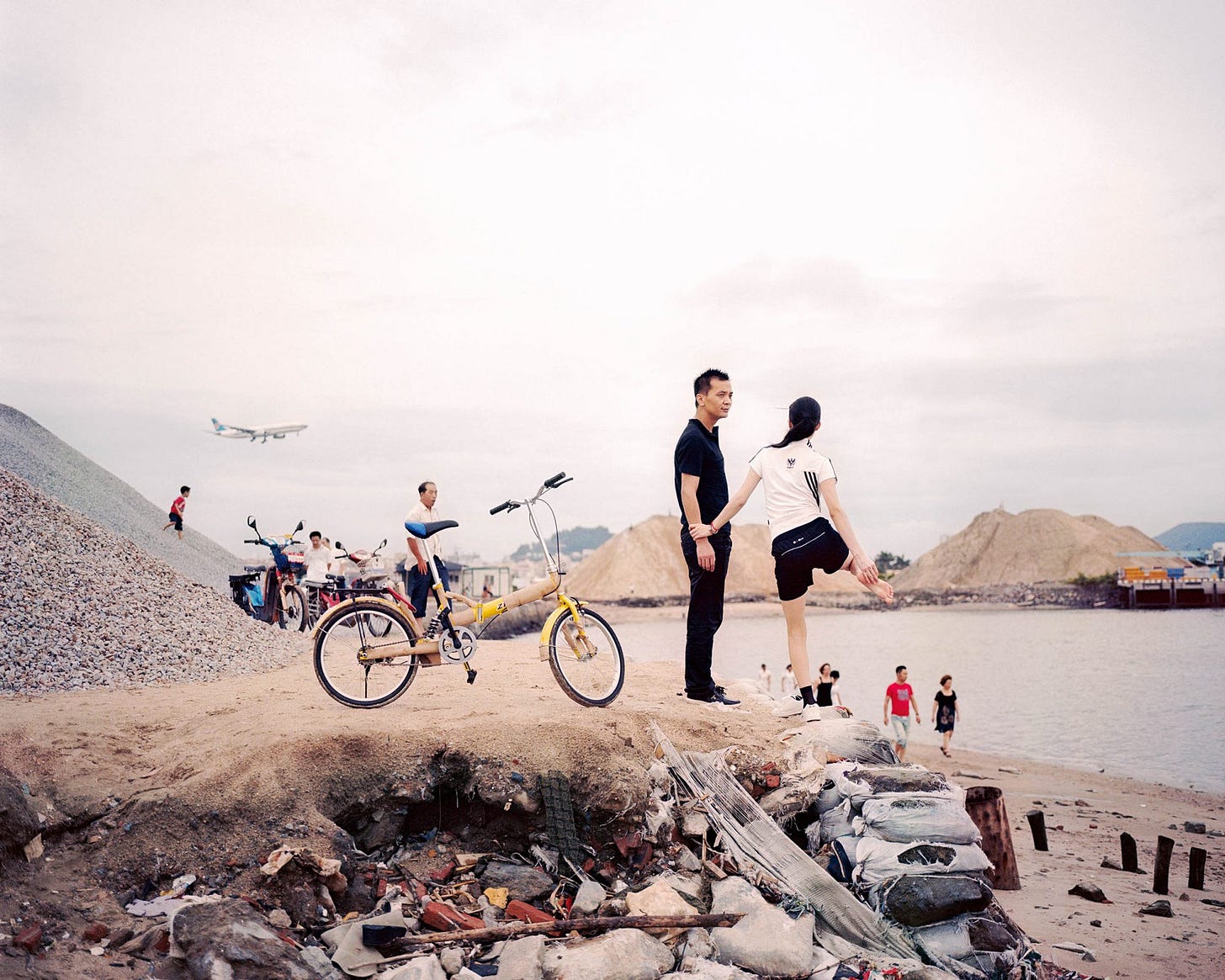
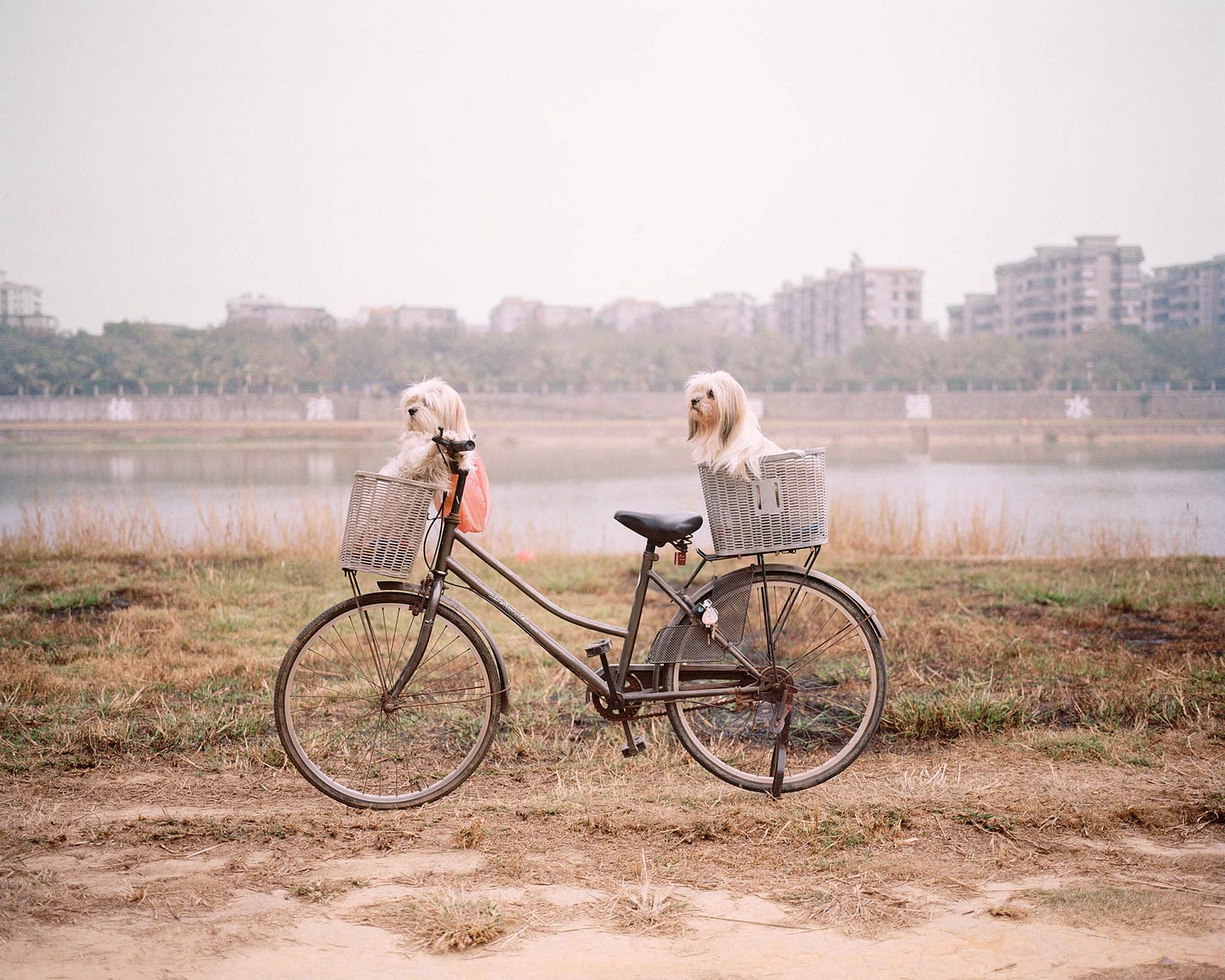

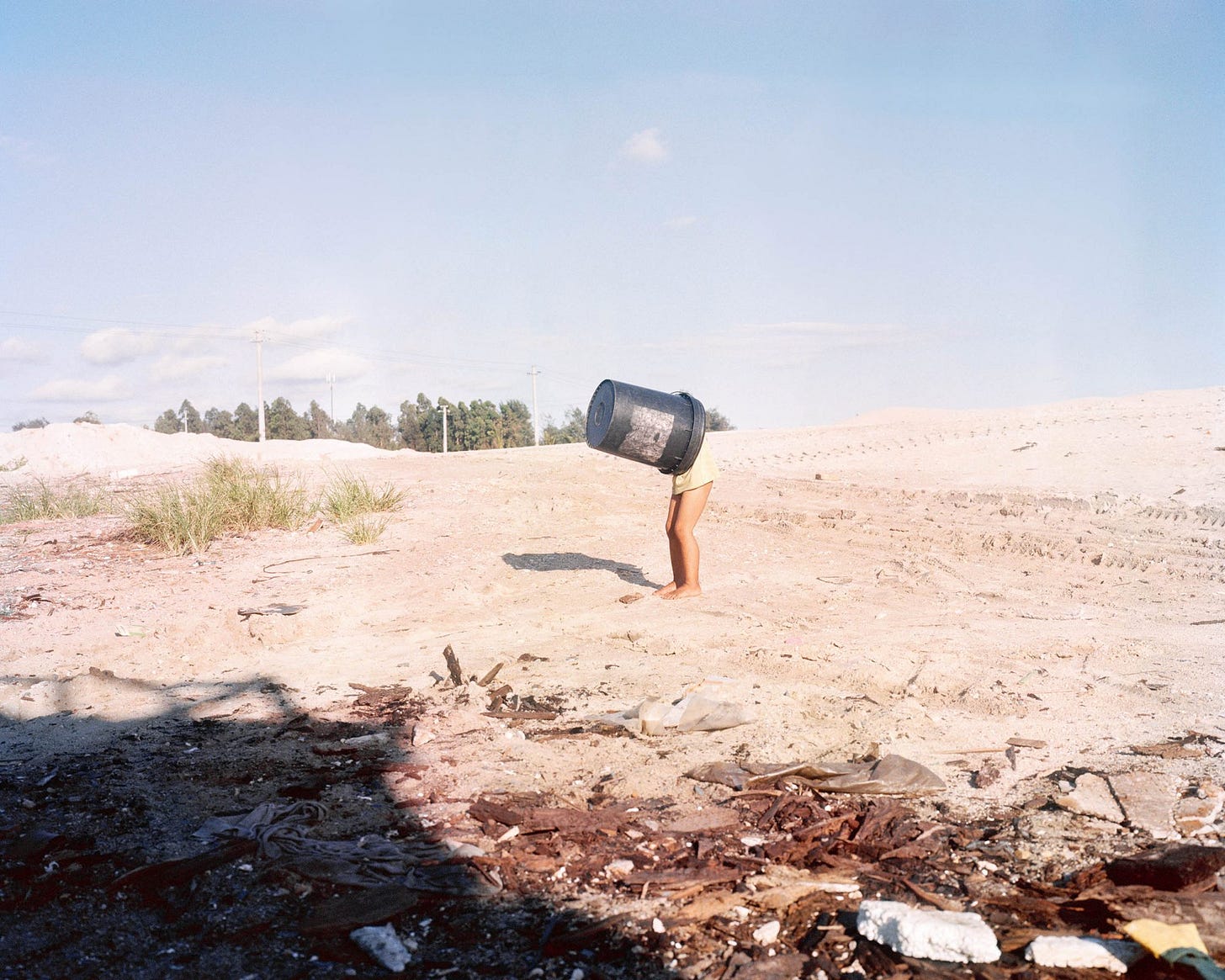
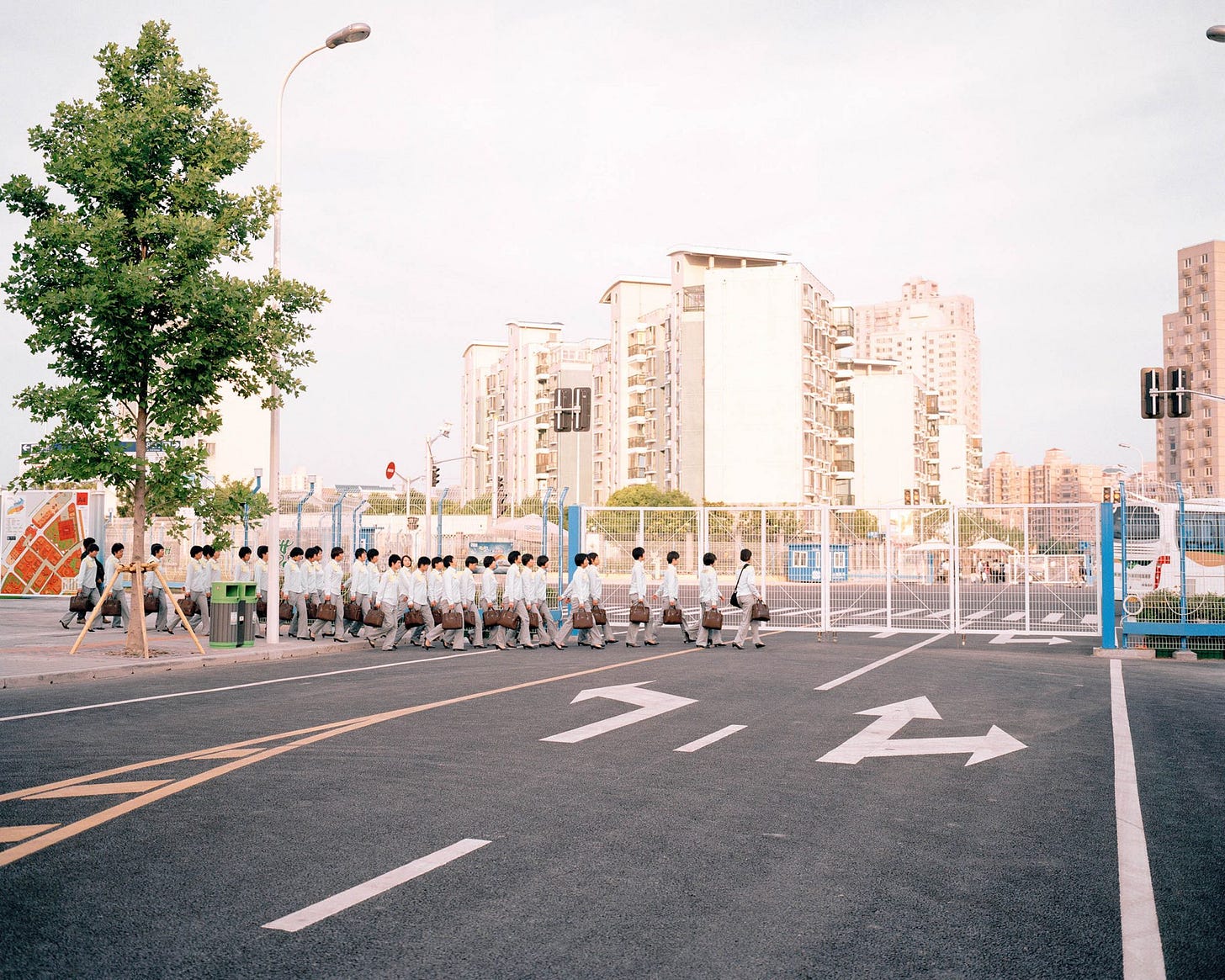
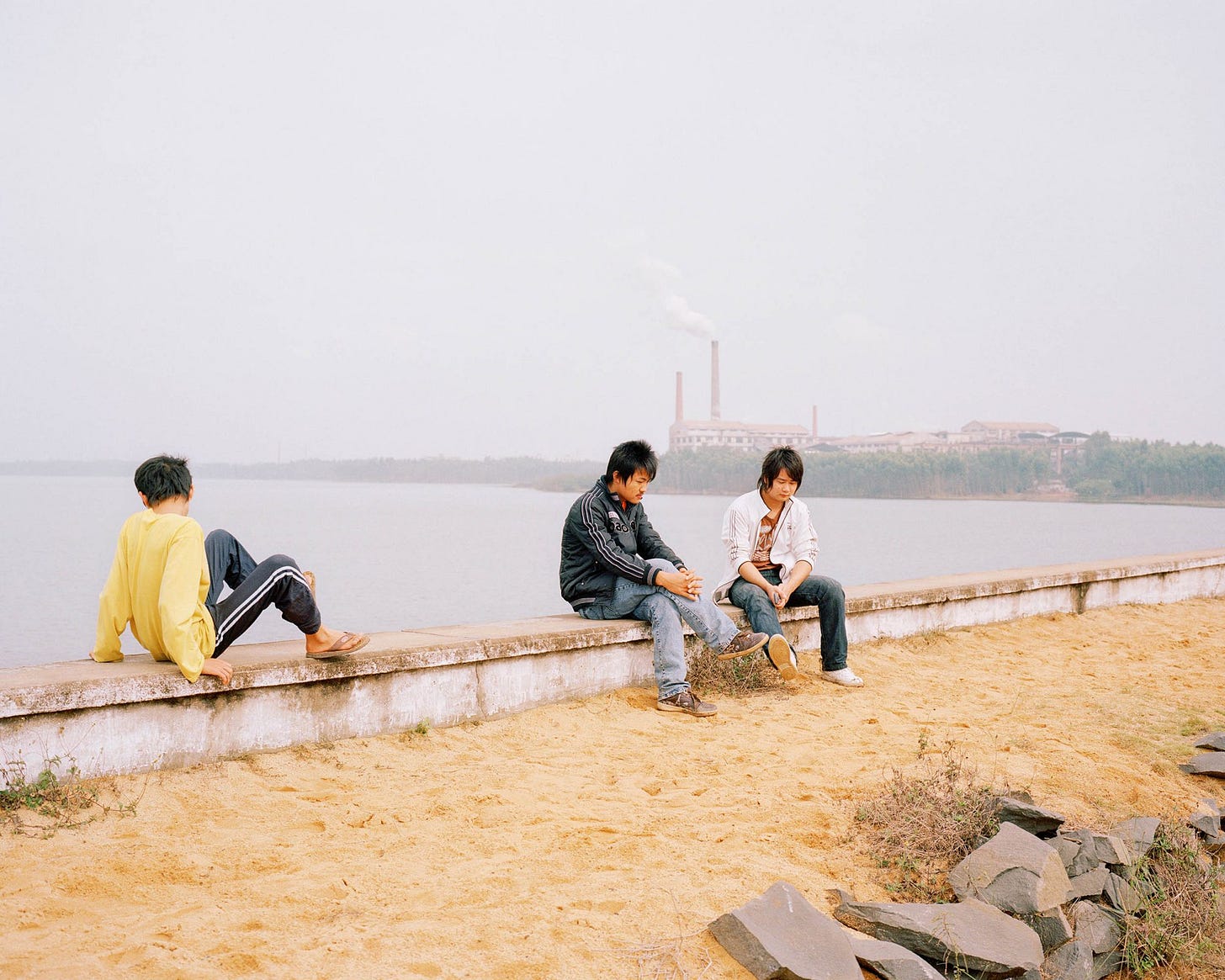
Thanks for this Neil. After nine months so far living in China I completely agree that it seems almost being understanding for so many reasons.
Yet the other thing that has struck me is that the people I see every day are just like the people back home in the UK - and I suppose the rest of the world.
Chinese people want economics security, a decent job, somewhere nice to live, good schools for their kids, time to spend with friends and family etc. etc. - just like the rest of us.
Today was the big dragon boat competition in Guangzhou. I joined a team of expats this year and took part in the races. The Chinese competitors and the spectators were overwhelmingly positive and supportive. It was great.
The great tragedy is how we as people who can be friends across all kinds of language and other barriers can so easily become hostile and aggressive towards others for no rational reasons.
I see the photographs I take here as my very small attempt to show China and Chinese people beyond the often abstract, often hostile and often cynical rhetoric from politicians and 'experts' in both China and the West.
Excellent Post. The idea that a photographer can take on the 'coast' and do so without trying to emulate Parr or Massimo Vitale is evidence that photography is its own language with so many great 'accents'. I really enjoyed these and will definitely have a deeper dive! Thank you!